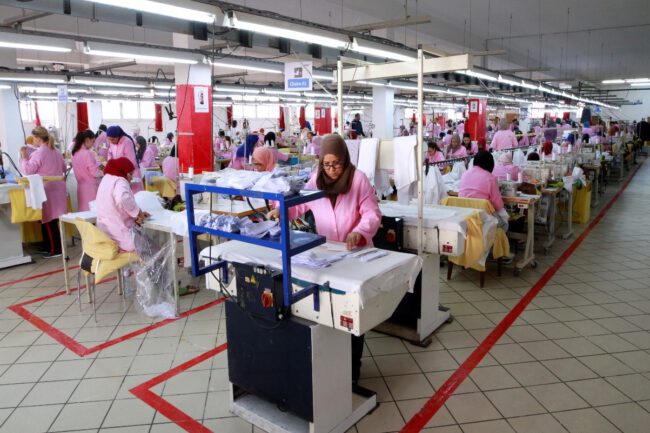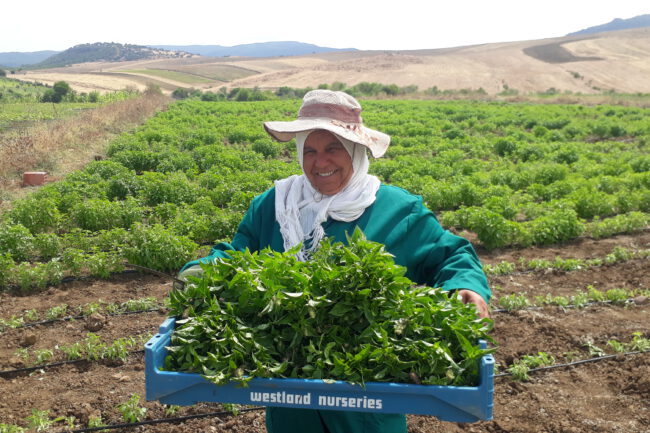Country Portfolio Tunisia
In 2022, CFYE launched a Call for Solutions in Tunisia. CFYE sought to disrupt the employment status quo for Tunisian youth and aimed to co-invest in innovative private-sector-led solutions specifically those that support agri-businesses, the textile sector, and digitally-enabled solutions. Issam Elkhorchani is our Country Lead for Tunisia.
Tunisian Job Market & Youth
Tunisia, a country of 11.7 million, has long been regarded as a fine example for its regional peers in relation to technological innovation and its impressive growth in the years following its independence. This growth, however, has been unable to address the fundamental disparities between the coastal regions and the neglected interior and southern regions of Tunisia, leading to widespread unrest and the Jasmine Revolution of 2011.
In the last decade, Tunisia has faced budgetary pressures, a depreciating currency, and economic stagnation. In addition, the economic impact of the pandemic, along with regional disparity, low job creation, and an education system that has been unresponsive to labor demand, has led to staggering unemployment figures. By September 2021, the national unemployment rate stood at 18.4%. Meanwhile, ten years after the revolution, disillusioned youth demand better economic opportunities.
Unemployment disproportionately impacts university graduates, women, and youth with 28.5% of youth Not in Education, Employment, or Training (NEETs) which drastically curbs further professional development.
The private sector cannot fully incorporate the large numbers of new labor market entrants, resulting in labor supply pressures. A largely unintegrated labor market system leads to inefficiencies in meeting current vacancies with the right talent. Many new private-sector jobs are informal (46%), and are associated with low wages and low quality. Moreover, the majority of employment opportunities are concentrated in the larger Tunis and Coastal zone.
Action is needed to stimulate job creation, address the gaps between employee skillsets and employer requirements, tackle the exclusion of graduates, women and youth, and improve the quality of existing jobs.
Our Impact
Our Portfolio in Tunisia
Considering the aspirations of the Tunisian youth, the business climate, and the requirements of supply and demand, we created a portfolio that focuses primarily on high potential industries in the digital and entrepreneurial economy. We plan to achieve more than 9.000 decent jobs for Tunisian youth. More than 4.5000 of these projected jobs will be new jobs created by our partners. The rest will be achieved through either matching youth to relevant jobs or improving the conditions of existing jobs to achieve decency in work.
Women have a significant focus in our portfolio, as more than 5.500 of the jobs will be occupied by young Tunisian women – definitely surpassing CFYE’s 50% ambition.
Our current portfolio in Tunisia is very diverse. We have a mix of waged employment and (dependent) self-employment in our current portfolio, all serving one main goal: helping youth find decent employment.
With the support of CFYE, we will scale our work across Tunisia, and catalyse a new market supporting the only immersive coding program. We will train 1244 youth to become Full Stack Javascript software engineers with the soft skills demanded by globally-competitive tech firms.
Our project ‘Ecological Complex Tunisie Vert Emeraude’ will implement meaningful impact in the field of management of solid and liquid hazardous waste. With the support of CFYE, we can develop and progress at a more rapid pace.
With CFYE support, we can continue to upskill our employees through regular training sessions in the fields. It will aid in bridging the skills gap in this sector of food safety and technological skills for all our workers.
CFYE funding we enable us to offer valuable job opportunities for high and medium-skilled graduate women. The financial and technical support from CFYE will also help us impact positively on local working conditions and environmental resources.


